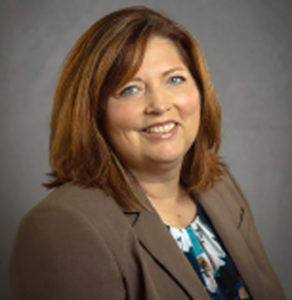 Karen Regal
Karen Regal
Director, Clinical Resource Management
Community Health Systems
Franklin, Tennessee
As a student, Karen Regal majored in history and had an interest in archeology. Then life intervened. At age 21, she got married and moved with her husband – a dental lab technician – to Guam. The couple lived there six years, then returned to Chattanooga, Tennessee, where Regal had lived as a teenager. They had another child, and Regal took a job as a receptionist in a dental office. Though she found satisfaction in her job, “I wanted to accomplish more,” she says. So, in her 30s, she made a radical decision – return to school and get a nursing degree.
“I was on a different wavelength” than many college students, she says. “Instead of focusing on, ‘Who will I have a date with this weekend?’ like you do when you’re 19, I enjoyed tackling and winning over skill sets I hadn’t mastered before, like statistics and algebra.”
She blended her experience in labor/delivery, med/surg and pediatric ICU, and found her way to IV nursing. She loved the work, ultimately becoming the manager of her department and eventually a director over IV access quality. In that position she was regularly involved in her facility’s value analysis team.
“Our regional director, Tim Fix, must have seen something in me that made him think I’d be great in supply chain, because he convinced me to apply for a job on the newly formed value analysis team for the corporation,” she recalls. “I did and was hired for the position. That was in 2012, and I haven’t looked back. I love what I do!”
In her role as director of clinical resource management, she provides and guides nursing’s perspective on supply chain initiatives, such as product standardization.
Describe a key mentor or event in your life.
“My key mentor for this work was Beverly Slate, the supply chain director at my first facility,” says Regal. “She took me under her wing and taught me the ropes. She taught me about contracts, operations, how to interact with vendors and how to approach difficult conversations. I truly miss working with her now that I’ve moved to a different corporation.”
In what way(s) are you a better supply chain leader than you were, say, five or 10 years ago?
“One of the ways that I’ve grown the most is learning how better to balance the needs of the corporation as a whole vs. the individual facility or individual clinician,” she says.
Describe the key characteristics of the successful supply chain leader of the future.
“In my opinion it would be that we learn to partner with our vendors and our clinicians to achieve mutual goals for this new paradigm.”
